Friday’s vote in South Korea’s National Assembly recommending the impeachment of President Park Geun-hye marks a major turning point in the country’s political history. After six weeks of large-scale public protests and plummeting levels of political support (including within her own party), President Park was confronted by a humiliating personal defeat and an outright rejection of leadership practices that have long dominated Korea’s political life.
Immediate attention now focuses on President Park’s political fate, whether she will be able withstand widespread calls for her resignation, and the impending contest over who might succeed her. Over the longer term, attention is likely to turn to a larger political agenda, including calls for constitutional revision. But the latter issue seems certain to become submerged in the succession to the embattled, isolated president—as well as in how and when this process might unfold.
Jockeying ahead
The secret ballot vote of 234-56 in the National Assembly comfortably exceeded the requirement of the two thirds affirmative vote of 200 needed for impeachment. Even a near-majority of President Park’s own party voted in favor of her removal from office. It represented a stunning repudiation of her leadership and a parallel rebuke to long-entrenched political practices in the Republic of Korea.
The impeachment resolution remains subject to review by South Korea’s constitutional court, whose nine members were appointed either by President Park or her immediate predecessor Lee Myung-bak, who also represented the political right in Korea. A two-thirds majority is needed to ratify the National Assembly’s decision. Until the court rules, Prime Minister Hwang Kyo-ahn will serve in a caretaker role.
However, the judicial review involves major potential complications. The chief justice of the court is scheduled to step down at the end of January, and another justice will leave the bench in mid-March. At the same time, President Park still hopes that the court will contest the legislature’s decision, or that the special prosecutor will conclude that the charges are either unproven, or do not justify an early end to her tenure in office, which is scheduled to conclude in late February 2018.
An outcome enabling President Park to continue in power seems very unlikely, though in view of the court’s powers of review it cannot be wholly excluded. However, a decision to overturn the impeachment vote would be certain to provoke major public protests that, until now, have been peaceful and even celebratory.
At this point, President Park may believe that serving out the remainder of her term would enable her to uphold her personal sense of honor. But even if President Park were somehow able to remain in office, her ability to govern has already been fatally compromised. The allegations against the president’s conduct, most deriving from highly secretive ties to her long-time confidant Choi Soon-sil, speak to corruption and illegality at the highest levels of political leadership and in the corporate sector.
There are now three separate political clocks running in the ROK: those determined by statutory requirements (quite possibly accelerated by the impending retirement of two members of the court); public expectations that Park Geun-hye must vacate the presidential office as soon as possible; and President Park’s own political clock, as she plays for time.
[T]he prospect of protracted political immobilism stretching well into 2017 seems very real.
The constitutional court has a maximum of 180 days to review the charges against the president, and the special prosecutor has an investigatory mandate of 100 days. Barring a decision to resign—a step that Park insists she will not take—the prospect of protracted political immobilism stretching well into 2017 seems very real. Moreover, the domestic crisis persists against the background of President-elect Donald Trump’s highly contradictory campaign statements about both North Korea and U.S. security commitments to the South; and fears of additional dangers posed by a nuclear-armed North Korea, even as Pyongyang has been conspicuously near-silent about political developments in Seoul.
Democracy at stake?
If the impeachment verdict is upheld, a snap election to elect a new president would be held within 60 days of the court’s ruling. The maneuvering among various presumptive candidates has already begun, especially within various opposition parties on the left. But Saenuri, the ruling party, confronts a deep divide between the pro-Park and anti-Park forces, and it is far from certain that the party can persist in its extant form.
But none of those aspiring to the presidency seem fully prepared for the impending electoral struggle. The political campaign seems certain to highlight the deep personal and ideological fissures within the Korean body politic that have persisted across the decades.
Three political outcomes seem imaginable: a victory by a left-oriented candidate seeking retribution for the political excesses of the past and very likely intent on rolling back Park’s heightened defense measures against North Korea; a victory by a candidate on the right seeking to preserve as much of the existing system and existing policies as possible; and victory by a more centrist candidate advocating reform and national reconciliation. Only the third path holds out the prospect of meaningful change that millions of Koreans urgently seek. Though prevailing circumstances appear to favor a candidate on the left, the electoral outcome is far from certain at this point, especially in a multi-candidate field.
The larger challenge of a lasting transformation of Korea’s still young democracy has barely begun, but should be uppermost on the agenda of the next president. It remains to be seen whether the next leader will be seized by this need, or will remain consumed by refighting the issues of the past.
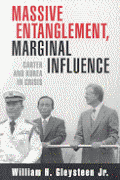
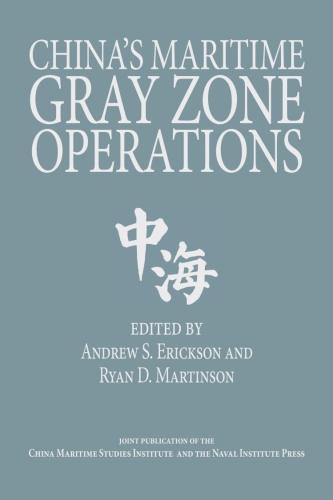
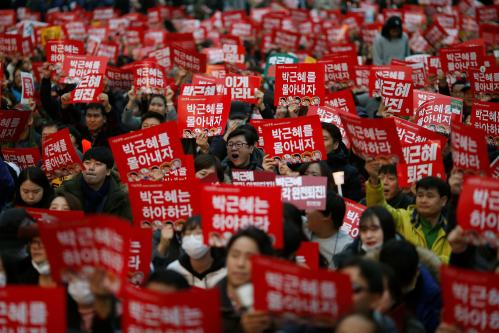
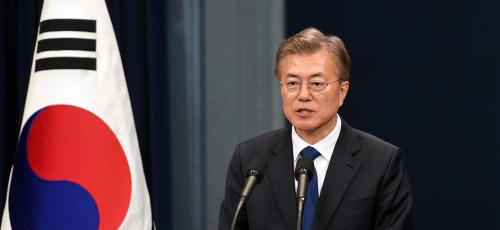
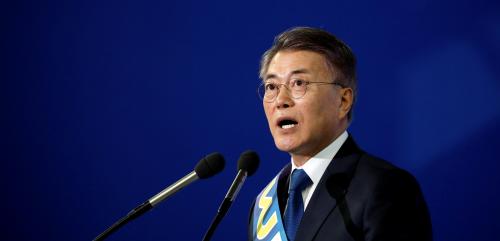
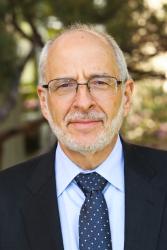


Commentary
South Korean politics after Park Geun-hye
December 12, 2016